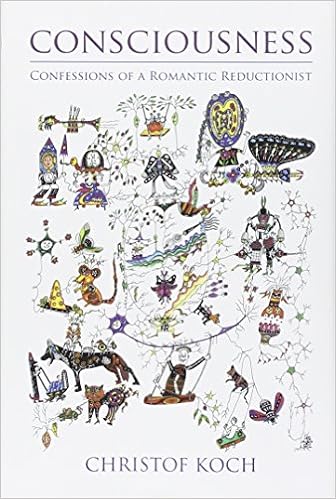This week, I had the pleasure of speaking with Dr. Christof Koch, and the topic, I would say, was panpsychism, but we covered so much of his work in human consciousness, including the Integrated Information Theory and a breaking new way to measure consciousness. It was a great conversation, one which has me thinking of some great new Science Fiction ideas based in some amazing reality.
Christof is the Chief Scientific Officer of the Allen Institute for Brain Science in Seattle, Washington. From 1986 until 2013, he was a Professor of Biology and Engineering at the California Institute of Technology in Pasadena. While born in Kansas City, he grew up in Amsterdam/Holland, Bonn/Germany, Ottawa/Canada, and Rabat/Morocco. His education includes the Lycée Descartes with a French Baccalaurèat, studies in Physics and Philosophy in Tübingen, Germany, where he earned his PhD from the Max-Planck-Institut. He spent four years as a post-doctoral fellow at the Artificial Intelligence Laboratory and at the Brain and Cognitive Sciences department at MIT.
He thinks a lot about the universe and how it came to be, about the brain, how it produces consciousness and how the sentient mind emerges from the physical brain. We covered that and much more, so please enjoy my conversation with Christof Koch.
Get his book on Amazon:
We discussed:
- ‘What is consciousness?’
- The more a system can affect itself, the more it is conscious. Is this measurable, quantitatively? Is that what Phi is?
- You don’t agree with the concept of human exceptionalism (a la religion). I wonder though, if studying consciousness has given you any insight into afterlife and the survival of consciousness?
- With the idea of panpsychism, do you think the individual consciousnesses are connected to each other? Do you think, with consciousness being common to ‘all God’s creatures’ that they could be tapping into a larger, cosmic consciousness?
- How does this influence your idea of dualism and physicalism?
- What about rocks and trees? Do they have consciousness? Using the Integrated Information Theory, would that extend to any form of matter?
- Integrated information theory of a system: Significant that a computer’s stored information is disconnected bits, not interconnected like our conscious minds. However, lately, these bits have been intelligently connected by computers (machine learning). Do you think this might give computers consciousness, somehow? How close is the internet to waking up? Do you think you’ll be able to measure the Internet’s Phi?
- Unity of consciousness, different parts of the brain. Consciousness goes away in deep sleep. Curious, but not sure what to ask here. Is it both the complexity and integratedness of the brain that render consciousness?
- In 2013, you spent time with Buddhist monks in India. You debated the Dalai Llama for a full day on ‘consciousness’? What did you learn from him? What do you think he learned from you?
- Using what we’ve discussed today, is there a way for an individual to exercise/improve/develop his/her consciousness? Is there a way to access deeper levels of our consciousness?
Podcast: Play in new window | Download

This is a great podcast! Finally an interviewer without an axe to grind, who seems genuinely open-minded about the nature of consciousness! I’m loving your choice of guests so far, and enjoying your easy-going approach to the topic.
I have one constructive criticism however: I am always frustrated with interviews that never really press the interviewee to account for the evidence which contradicts their chosen consciousness model. I’m afraid your last couple of interviews left me with the same frustration!
Christof Koch was never really pressed to explain how his brain = mind model could possibly accommodate the sort of evidence which Ed Kelly was discussing, or whether he has really delved deeply into that evidence. It’s voluminous, and in my mind, completely invalidates that model. Unfortunately it seems to be completely ignored by the vast majority of neuroscientists, which is very disappointing.
Conversely, it would have been good to press Ed Kelly on what he makes of the strong evidence for mind = brain : brain damage with altered personality, split brains, anesthesia, etc, etc.
Personally, I feel that it is easier to explain the paradoxical evidence with Ed’s approach. I urge you to invite Bernardo Kastrup on your show to elucidate how this can be all be accommodated under an idealistic model. It’s really quite logical!
Anyway, this is such a fascinating topic, thank you for providing an excellent podcast! I’m looking forward to your future interviews.
Thank you, John! I have had that same thought myself, to dig a bit deeper into the evidence. I’ll keep that in mind.
Thank you for listening!
Oh, and I will reach out to Dr. Kastrup. Thanks for the recommendation.
Hi Stuart,
I’ve enjoyed listening to your podcasts through #8. Are you continuing the consciousness podcast? Are there more episodes?
Thanks,
Gae Lyn
Yes, I am continuing these! We’re lining up new guests for 2018, so if you have any suggestions, I’m open.
Thanks for listening, Gae,
Stuart